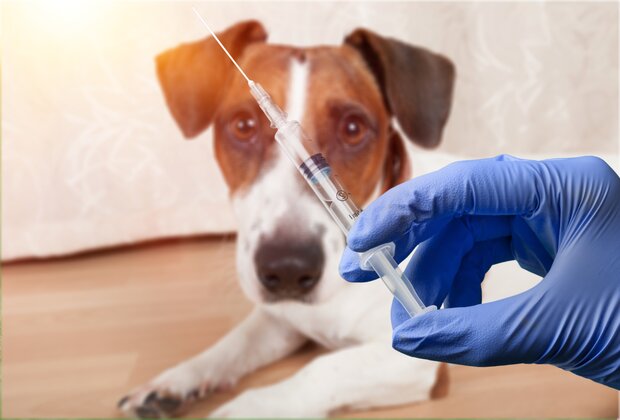The increase recent rise in reported cases of dog rabies, specifically in the Eastern Cape province is cause for serious concern. The Eastern Cape Provincial Government is undertaking a mass rabies vaccination rollout targeting dogs, to curb the spread of this vaccine-preventable disease. But one cannot help to wonder how we got here? Are rabies vaccination and control programs, or lack thereof, just another example of how the COVID-19 pandemic has affected our daily lives in a negative way? News24 asked the National Institute for Communicable Diseases (NICD) how the situation can be turned around.
Rabies at a glance
The World Health Organization (WHO) reports that up to 59 000 59 000 deaths of human rabies occur annually in more than 150 countries. Most of these cases occur in Africa and Asia, primarily as a result of poor rabies prevention and control measures in communities beset by dog rabies. Rabies is fatal infection, both in humans and animals. However, the disease may be effectively controlled through mass-vaccination in dogs, with a herd-immunity achieved when 70% or more dogs in a population are fully vaccinated. Humans mostly contract the disease through contact with rabid dogs – therefore if the disease is controlled in dogs, the risk of human rabies is largely removed. In countries where dog-transmitted rabies remains, rabies post-exposure prophylaxis rabies post-exposure prophylaxis is required to prevent infection in the exposed.
What is the situation in South Africa?
In South Africa approximately 10 human rabies cases10 cases of human rabies are reported annually, largely as a result of exposure to rabid dogs. Eight cases of human rabies A total of eight human cases have been confirmed in South Africa to date. In addition, a further three probable cases have been reported. The heartbreaking stories of human rabies cases are very similar. The first reported case first recorded human rabies death for 2021 involved a 2-year old child from eNgonyameni in the KwaZulu-Natal province. He contracted the virus from a dog in January, was hospitalised in February and succumbed to the disease shortly thereafter. During the same period a second human rabies case was reported from Thohoyandou in the Limpopo province, this time involving a 9-year old child who was bitten by a dog in December 2020, and died 2-months later (recorded as a 2020 rabies death). In June 2021 a 7-year old boy was bitten by a stray dog, and was admitted to hospital after the presentation of symptoms. He passed away shortly thereafter. Most of the cases reported in 2021 have been in children below the age of nine.
Increases in the number of dog rabies cases in different locations of South Africa has been reported in 2021. Districts of the Eastern Cape and KwaZulu-Natal provinces are hard hit. More than 150 dog rabies cases have been confirmed in the Eastern Cape, with at least 70 of those cases of rabies from Nelson Mandela Bay. In KwaZulu-Natal more than 200 cases of dog rabies have been reported for 2021 to date. In August 2021, the Western Cape Department of Agriculture Veterinary Services reported two cases of dog rabiestwo confirmed cases of dog rabies from Khayelitsha in the City of Cape Town. This was the first report of rabies in dogs from the province in decades.
Is COVID-19 the culprit for domestic pet vaccination taking a back seat?
The COVID-19 epidemic in South Africa has affected everyday life. And as the disease spread, not a single community was spared from its devastating aftermath. Safeguarding lives and livelihoods became the top priority, which likely resulted in domestic pet owners and communities in general being less involved and less able to ensure the vaccination of their pets. It is also anticipated that the lockdown regulations have impacted the ability of veterinary services to deliver routine rabies vaccination campaigns and support surveillance efforts as per usual. The full extent of impact on delivery of health care services for conditions other than COVID-19 will still be learned. It is generally believed that the health care seeking behavior of the South African public has been greatly affected during lockdown, and as such also those that would have been required to seek rabies post-exposure prophylaxis.
How can rabies control efforts get back on track?
Rabies is not transmitted from human-to-human and each case is associated with a sick animal. It is clear that the vaccination of dogs (and to some extent, domestic cats) is the most important intervention to support rabies prevention and control efforts. Globally, the link between dog rabies and human rabies are appreciated. Also, in South Africa, majority of human rabies cases are linked to exposures to rabid dogs. The WHO and other global stakeholders have also taken hands in a pledge towards elimination of dog transmitted human rabies by 2030 eliminating dog-mediated human rabies by 2030, a collaboration that seeks to strengthen healthcare systems, give equal access to care and contribute towards sustainable development. This is a worldwide goal. Disadvantaged communities are disproportionately impacted, with the majority of deaths recorded in children. In order to achieve zero rabies deaths, bite prevention education and awareness of rabies are needed. For the effective delivery of PEP, good public awareness of rabies and access to treatment are critical. Timely prophylaxis, including wound cleaning, vaccines and occasionally rabies immunoglobulin, are required for people exposed to rabies.
In South Africa’s state health care facilities, human rabies vaccines and immunoglobulin are provided free of charge. A thorough risk assessment and adequate delivery according to the WHO and national guidelines will minimize the overuse or misuse of PEP, and guarantee the availability of PEP for individuals requiring rabies post-exposure prophylaxis. As infections are acquired in most cases from dog bites, the importance of dog vaccination awareness and increased vaccination rates is essential to minimize human exposure.
A future free from human rabies deaths will not transpire on its own.
Increasing community awareness of the disease, and its prevention is vital, and initiatives, for instance World Rabies Day on September 28th, aims to achieve exactly that. Vaccination is key and we all need to do our part.
Sinenhlanhla Jimoh, Nileen Gale, Dr Jacqueline Weyer





